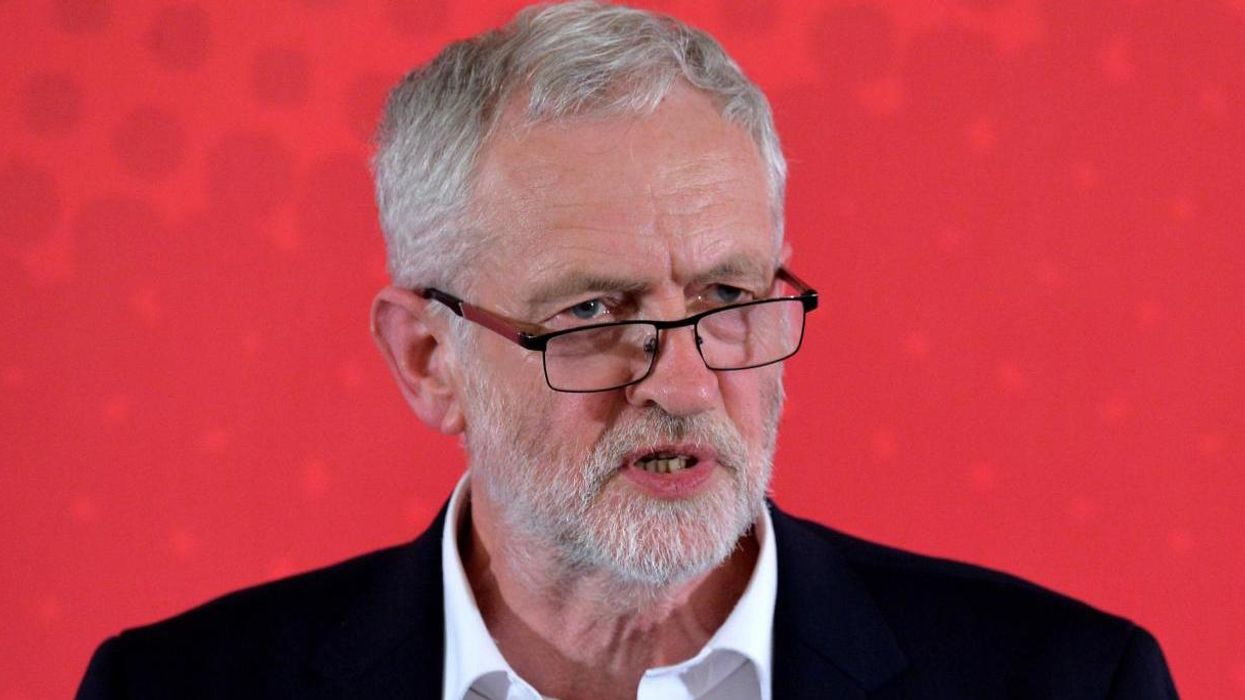News
Harriet Marsden
Apr 28, 2017

Picture:
GETTY IMAGES / MARK RUNNACLES
Jeremy Corbyn is mocked mercilessly by the internet on a near daily basis, but in the run up to the general election it's media bias that should concern us.
As the leader of the opposition, and as a serious politician with a penchant for allotments, it's understandable that Corbyn would be subject to scrutiny.
Even the Foreign Secretary Boris Johnson has been getting in on the mud slinging - just this week he called the Labour leader a 'mutton-headed mugwump'.
But in the case of the media, political bias and disproportionate critique of one public figure over another is a dangerous threat to democracy.
Especially in the run up to a massively important election.
A 2016 report by The Independentfound that 75 per cent of print press coverage misrepresented or unfairly attacked Corbyn - without clearly differentiating between fact, conjecture and comment as the Independent Press Standards Organisation (IPSO) obliges newspapers to do.
And what of broadcast and online media?
Corbyn himself has frequently claimed that the BBC are biased against him, including political editor Laura Kuenssberg, who has been investigated and even attacked on Twitter over her allegedly negative Corbyn coverage.
In a 2016 Vice News documentary, entitled Jeremy Corbyn: The Outsider, Mr Corbyn claimed:
There is not one story on any election anywhere int he UK that the BBC will not spin into a problem for me.
It is obsessive beyond belief. They are obsessed with trying to damage the leadership of the Labour party.
The BBC Trust, the broadcaster's regulatory body, found that one of Kuenssberg's statements was inaccurate.
It is worth noting however, that the Trust also found no evidence of a deliberate attempt to mislead audiences.
Another report, published in 2016 during the run up to the Labour leadership election, analysed 465 online news items from 8 providers and 40 prime time television news bulletins on BBC One and ITV over a 10-day period .
Researched by the Department of Film, Media and Cultural Studies at Birkbeck and the Media Reform Coalition, based at Goldsmiths, it was titled 'Should he stay or should he go? Television and Online News Coverage of the Labour Party in Crisis'.
It reported a "clear and consistent bias in favour of critics of Jeremy Corbyn".
Despite strict broadcast impartiality rules, the report confirmed that on the mainstream news bulletins, there was twice as much time on air awarded to voices critical of Corbyn than those in support.
The evening news also showed a tendency towards negative and even insulting language when describing Corbyn and his supporters, the word 'hostile' was highlighted in the report.
Online news sites were also found to be comparatively biased.
In all but one of the online news outlets, across both the left and right-wing political spectrum, there were more views opposed to Corbyn than in favour.
Dr Justin Schlosberg, author of the report and chairman of Media Reform Coalition, said:
This research shows that bias in mainstream media coverage of the Labour Party crisis was not inevitable or unavoidable given a minority of outlets that were relatively balanced.
Amidst the social fracturing and polarisation of democratic life post-Brexit, the need for a more plural and inclusive mainstream news media has never been more urgent.
We hope that broadcasters and editors will respond positively to our call to consider the impact of imbalanced reporting on the democratic process.
But did they?
The Independent, the Huffington Post and the International Business Times were among the online outlets found to have had the least biased coverage of Corbyn.
But while The Independent and Huffington Post “exhibited a slight tendency to favour sources critical of the Labour leadership and the issues they tended to highlight,” the IBTimes was the only outlet to have given “relatively greater prominence” to Corbyn’s supporters and issues they raised.
In September 2016, polling organisation YouGov found that 51 per cent of British adults agreed that media coverage of Corbyn had been "deliberately biased," while 29 per cent disagreed.
The Independent's Jon Stone reported at the time that Labour voters were even more adamant, with 69 per cent alleging bias.
But will it change in time for the general election?
Media Reform's blog post, 'Five myths about Corbyn media bias', makes the point that while almost two years of consistent negativity have done little to dent his support among grassroots Labour voters, the overall effect on the national voting mindset is another story.
It is true that the overwhelming editorial attacks on Corbyn since he was first put on the Labour leadership ballot seems to have done little to dent his support.
But his critics rightly point to a different story told by national polls which suggest that beyond the grassroots, Corbyn carries little favour with the electorate at large.
Indeed, editors have tended to justify their particular news judgements about Corbyn on the basis of these poll ratings.
But this assumes that the polls influence the news agenda rather than the other way around.
More: The difference between Bernie Sanders and Jeremy Corbyn in two charts
More: How Labour is failing under Jeremy Corbyn, in 8 charts
Top 100
The Conversation (0)













